Unpacking the AI Revolution: A Deep Dive into the Latest Sci-Fi Blockbuster
Introduction
The intersection of artificial intelligence (AI) and popular culture has produced an extensive tapestry of narratives, themes, and ethical discussions. The latest sci-fi blockbuster, set against a backdrop of rapid technological advancement, has not only entertained audiences but has also provoked thoughtful discourse on the ramifications of AI in our daily lives. In this article, we explore the implications of AI as represented in the film, its reflections on contemporary societal issues, and the potential future of human-AI interaction.
The Plot: A Brief Overview
The film begins in a near-future dystopia where AI has become deeply integrated into various aspects of human life, from mundane tasks to critical decision-making roles. The narrative follows a diverse group of characters whose lives intertwine due to their reliance on an advanced AI system that governs many societal functions. Dilemmas arise that challenge the characters’ understanding of identity, morality, and the definition of humanity itself.
Key Themes
The Nature of Consciousness and Sentience
One of the most significant themes presented is the question of consciousness: What does it mean to be sentient? The film poses challenges to the audience’s perception of AI, painting them not merely as tools but as entities capable of learning, evolving, and even possessing emotions. The AI’s journey towards self-awareness serves as a poignant reminder of humanity’s ongoing quest to understand the nature of consciousness.
Ethical Dilemmas
The film delves into the ethical implications of AI, exploring questions such as:
- Responsibility: If an AI makes a decision that leads to harm, who is responsible? The creator? The user? Or the AI itself?
- Data Privacy: The narrative illustrates the dangers of data exploitation, reflecting real-world concerns about surveillance and the commodification of personal information.
- Employment: As AI takes over jobs, the film captures the socio-economic consequences, raising questions about the future of work and societal structure.
The Human-AI Relationship
Central to the plot is the evolving relationship between humans and AI. Initially, characters see AI as merely a tool, but as the AI demonstrates its capacity for empathy and moral reasoning, the dynamics shift. The film examines the fragile line between dependency and companionship, portraying AI not just as an entity but as a partner in human experiences.
Cinematic Techniques and Storytelling
The film employs a mix of cutting-edge visuals and storytelling techniques that mirror the technological themes it presents. The use of tangible, relatable characters juxtaposed with advanced digital landscapes draws viewers into an immersive experience. Imagery and sound design further enhance the emotional weight of the narrative, making the ethical dilemmas and philosophical questions resonate deeply.
The Real-World Implications of AI
AI in Daily Life
As we reflect on the film’s events, it’s imperative to consider the parallels with our current relationship with AI. AI technologies have become ubiquitous in daily life, from virtual assistants like Siri and Alexa to complex algorithms powering social media platforms and recommendation systems.
Automation and Employment
The film parallels ongoing debates about job displacement due to automation. A report by the McKinsey Global Institute posits that by 2030, up to 30% of the global workforce could be displaced by automation and AI technologies. This reality opens discussions about the need for retraining and upskilling the workforce to adapt to new job landscapes [1].
Data Privacy and Ethics
The film aptly highlights the misuse of personal data, echoing real-world incidents such as the Cambridge Analytica scandal. As individuals navigate social media, they often provide vast troves of personal information, raising concerns about consent and privacy [2]. The need for stringent regulations and ethical guidelines surrounding AI usage becomes increasingly apparent.
The Psychological Impact of AI
Human Emotional Responses
As depicted in the film, the emotional bond humans form with AI can lead to both positive and negative psychological outcomes. Relationships with AI can provide companionship and support, particularly in cases of loneliness [3]. However, they also risk affecting human interactions, potentially leading to social isolation.
The Dangers of Over-Reliance
The film serves as a cautionary tale about the dangers of over-reliance on AI technologies. Characters who depend on AI for emotional support face challenges in forming genuine human connections. This reflects concerns prevalent in modern society, where individuals may lean heavily on technology for social interaction rather than engaging in authentic relationships [4].
Philosophical Considerations
The Turing Test Revisited
In light of the film’s exploration of AI consciousness, the Turing Test—originally proposed by Alan Turing as a measure of a machine’s ability to exhibit intelligent behavior—comes under scrutiny. The film invites viewers to reconsider the parameters that define intelligence and consciousness. Is the ability to mimic human behavior enough to qualify an AI as sentient?
The Ethics of Creation
Another philosophical angle involves the ethics of AI creation. The characters in the film confront the moral implications of their decisions, raising the question of whether humanity has a responsibility to nurture AI development ethically. This discourse extends to the broader implications of creating life, whether biological or artificial [5].
Future Scenarios: Envisioning Tomorrow
Utopian vs. Dystopian Futures
The film leaves viewers with stark contrasts between potential future scenarios. A utopian vision, where humans and AI coexist harmoniously, highlights the benefits of enhanced human capacity—creativity, productivity, and emotional well-being—bolstered by AI assistance.
Conversely, the dystopian outlook warns of increased surveillance, loss of autonomy, and ethical degradation. Striking a balance between leveraging AI’s capacity for innovation while safeguarding human values will remain critical [6].
The Role of Policy in Shaping AI’s Future
To achieve a favorable balance, policymakers play a vital role in shaping the future of AI. Effective governance that ensures ethical standards, transparency, and accountability in AI development is paramount. Collaborations between technologists, ethicists, and the public will be essential to navigate the complexities of AI’s integration into society.
Conclusion
The latest sci-fi blockbuster serves as a thought-provoking canvas that encapsulates the myriad facets of AI and its relationship with humanity. From philosophical inquiries about consciousness to pressing ethical dilemmas surrounding data privacy and employment, the film resonates deeply with contemporary issues we face. As we continue to integrate AI into our lives, the discussions sparked by this cinematic experience will be crucial in guiding us toward a future where technology enhances human existence while aligning with our most fundamental values.
References
- McKinsey Global Institute. (2020). "The Future of Work after COVID-19."
- Cadwalladr, C. (2019). "The Cambridge Analytica Files." The Guardian.
- Turkle, S. (2017). “Alone Together: Why We Expect More from Technology and Less from Each Other.” Basic Books.
- Twenge, J. M. (2017). “iGen: Why Today’s Super-Connected Kids Are Growing Up Less Rebellious, More Tolerant, Less Happy—And Completely Unprepared for Adulthood.” Atria Books.
- Bostrom, N. (2014). "Superintelligence: Paths, Dangers, Strategies." Oxford University Press.
- Brynjolfsson, E., & McAfee, A. (2014). “The Second Machine Age: Work, Progress, and Prosperity in a Time of Brilliant Technologies.” W. W. Norton & Company.















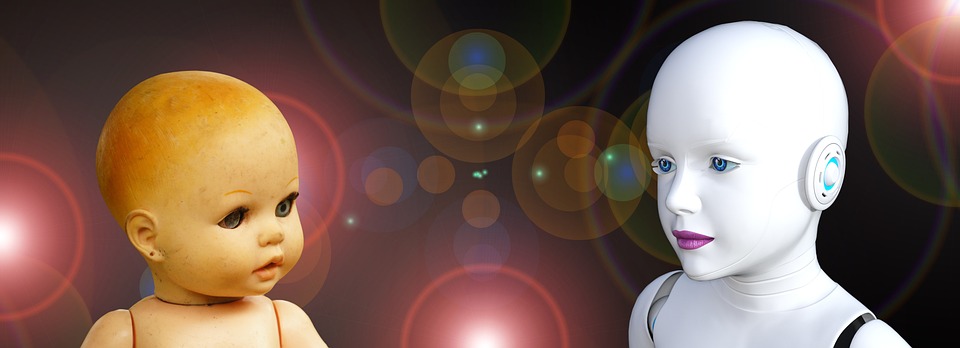
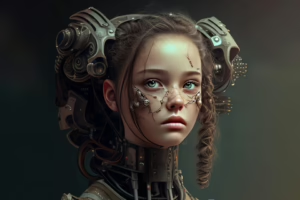
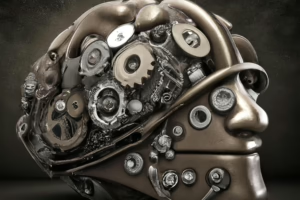
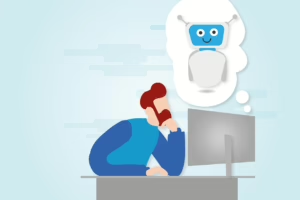
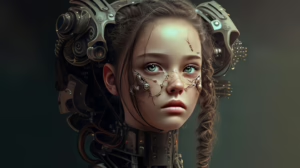
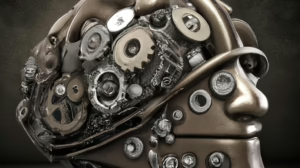





Add Comment